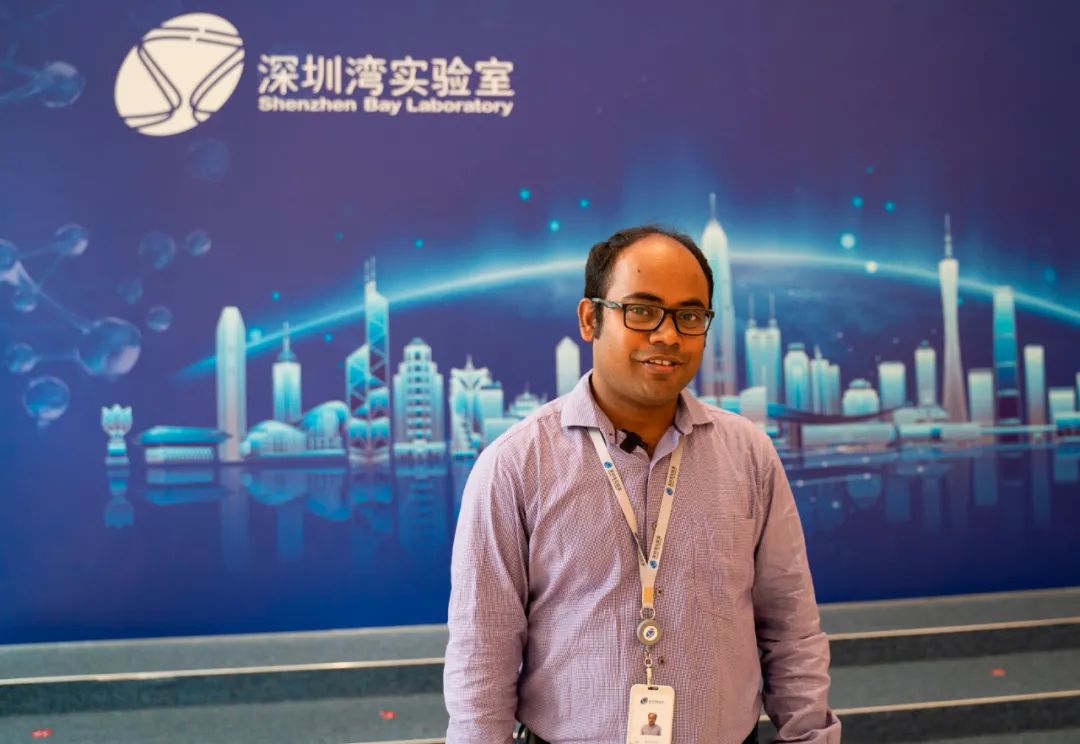Indian researcher enjoys life in Guangming
For 36-year-old Dr. Manas Mondal from India, who currently works as an associate research fellow at Shenzhen Bay Laboratory in Guangming District, working and living in the district is very pleasant.
Mondal’s research areas include biology, biophysics, and protein-protein and protein-DNA interactions, among others. After completing his postdoctoral fellowship at the chemistry department of Peking University in Beijing in 2019, Mondal was looking for a position that would allow him to continue his research work.

“I found the position here at Shenzhen Bay Laboratory,” Mondal told Shenzhen Daily. “It’s a new laboratory built over the past few years. It has world-class research infrastructure, with many experimental, computational and other facilities. The main focus of Shenzhen Bay Laboratory is the improvement of biological science and biological research for the purpose of good health and treating diseases in humans.”
“We [our group] mainly focus on computational biophysics and chemistry to understand different cellular processes, different kinds of disease mechanisms and drug development. So, when I got the opportunity to work at Shenzhen Bay Laboratory. I was very happy and jumped at it,” said Mondal.
Apart from a well-equipped laboratory, the city’s beautiful nature and dynamic lifestyle are also lures to the Indian researcher. Mondal joined the lab in 2019 and has since lived here.
His team’s main research goal is to develop efficient theoretical/computational methods, and study different biomolecular interactions and how these biomolecules behave inside the cell and fulfill their functions to maintain our body.
According to Mondal, there will be a new venue for Shenzhen Bay Laboratory inside Guangming Science City. “It will be a very nice place to work because it’s surrounded by very beautiful nature, greenery and mountains,” he said. “It has different kinds of new and modern facilities. Everything will be there. It will be connected and associated with different international research communities, universities and labs for a very collaborative development.”
Mondal said more international scientists are now working at Shenzhen Bay Laboratory. “When I first came there were two or three international researchers here. From last year, many others have joined us,” he said.
Mondal and his wife, Dr. Piya Patra, who also joined Shenzhen Bay Laboratory this year, feel very grateful to Gao Yiqin, a professor at Peking University and a senior principal investigator of Shenzhen Bay Laboratory.
“My supervisor, Prof. Gao from Peking University, is a very nice person,” Patra said. “I am very much happy to work with him. He is very helpful and kindhearted. My lab colleagues and the people of SZBL are very helpful and supportive. I like very much to work here.”
Apart from work, the Indian researcher lives a happy life with his wife in Guangming. The couple moved into a talent apartment in Guangming District after arriving from India earlier this year, not far away from their workplace.
“The government provides talent apartments for innovative researchers, so I applied for one,” Mondal said. “Shenzhen Bay Laboratory helped me with the application. I feel honored to get such a talent apartment. In Guangming, the nature is very nice. Although it’s a bit far away from Shenzhen’s crowded areas, this area is nicely developed with nice nature and tall buildings.”
The couple likes Shenzhen a lot. “Shenzhen is a newly born, newly developed city. When I came to the city, I felt very comfortable because there are more international researchers and families. There are also many Indian families, so we celebrate Indian festivals together,” he added.